
November 13
1093 Death: Malcolm III of Scotland, son of King Duncan, during his fifth attempt to invade England at Alnwick, Northumberland.
1312 Birth: Edward III, King of England (1327-77); will won victories against such renowned foes as Baybars, Llewellyn and Wallace.
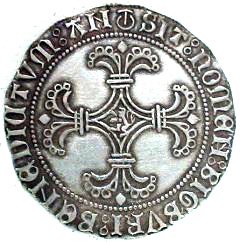
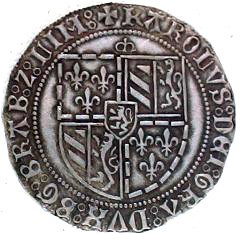
1564 Pius IV orders his bishops and scholars to subscribe to Professio Fidei, the Profession of the Tridentine Faith recently formulated at the Council of Trent (1545-1563) as the new and positively absolutely final definition of the Roman Catholic faith.
1618 In the Dutch commune of Dordrecht, the Synod of Dort convenes to discuss the Arminian controversy vexing the Reformed faith. In the end, about 200 Arminian (Remonstrant) ministers are deposed and fifteen are placed under arrest and later expelled from the country. (Bradley)





1792 Birth: Edward John Trelawney, in England, traveler, author (Adventure of Younger Son).
1830 Oliver Wendell Holmes publishes Old Ironsides.
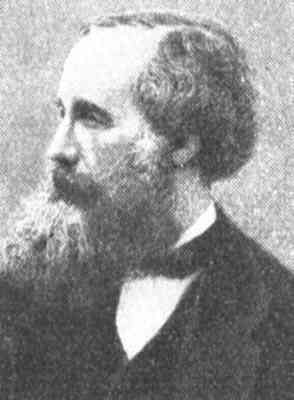
1839 The first US antislavery party, the Liberty Party, convenes in New York.
1849 Peter Burnett is elected as the first governor of California.
1850 Birth: Robert Louis Stevenson, in Edinburgh, Scottish novelist and poet. Author of Treasure Island, Kidnapped and Dr Jekyll And Mr Hyde.
1856 Birth: Louis D. Brandeis, in Massachusetts, US Supreme Court Associate Justice (1916-39), will be the first Jew ever to sit on the US Supreme Court.
1860 South Carolina's legislature calls a special convention to discuss secession from the Union.

1865 P. T. Barnum's New American museum opens in Bridgeport.

1878 New Mexico Governor Lew Wallace offers an amnesty to many participants of the Lincoln County War, but not to gunfighter Billy the Kid.
1887 Socialist demonstrators riot at London's Trafalgar Square in what is known as the first 'Bloody Sunday'.
1894 Birth: Arthur Nebe, SS General and head the criminal police (KRIPO) from 1933 to 1945. Nebe will be a professional policeman with the rank of Police Commissioner by 1924. Even before Hitler comes to power, he will have close connections to the SS group led by Kurt Daluege, and in April 1933, will be recommended by Daluege for the position of Chief Executive of the State Police. Nebe will quickly set about reorganizing the criminal police in the Third Reich and play a major role in establishing the totalitarian police system. In June 1941, he will be given command of Einsatzgruppe B, which is headquartered in Minsk, and during the next five months will be responsible for 46,000 executions in White Russia. Nebe will disappear in early 1945, but according to official records was executed in Berlin on March 21, 1945. Yet, several sightings and rumors of his activities will continue into the late 1960's. Shortly after the war an amateur film showing a gas chamber supplied with gas from the exhaust of a truck will allegedly be found in his former Berlin apartment. (Wistrich II)
1895 The first shipment of canned pineapple arrives from Hawaii.
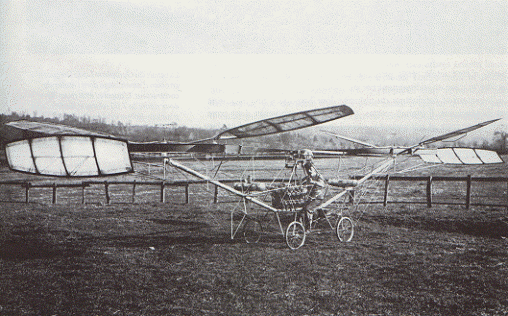

1915 Norman Hapgood in Harper's Weekly says that a sharp line separates Jews from Gentiles in America and concludes that anti-Semitic prejudice is becoming more distinct. "Americans do not deprive Jews of any rights," he wrote, "but they do not on the whole like them."
1917 WW1: General Allenby, closely pursuing the Turks, strikes again, driving them back to the north. Turning then toward Jerusalem, Allenby is detained by the appearance of Turkish reserves and the arrival of General von Falkenhayn, who reestablishes a front from the sea to Jerusalem.


1925 Initial experiments on the body of King Tutankhamun reveal him to be a 15 year old boy.

1930 In Plainsboro, New Jersey, the first revolving milk platform is used. For the first time, 1,680 cows can be milked in seven hours.
1929 By this day, some $30,000,000,000 in value of listed stocks have been wiped out in the New York Stock Exchange.
1933 In Austin, Minnesota, striking workers at the packing plant of George A. Hormel and Company hold the first sit-down strike in American labor history. The technique is a variation on earlier methods of striking such as refusal-to-work strikes and stay-in strikes, and proves the most effective of the three in discouraging violence. Three days later, the Industrial Commission of Minnesota begins mediation hearings, and by mid-December the strike is peaceably resolved. During the 1960s, various types of protest movements will adopt the sit-down technique, especially as a method of disarming overly aggressive authorities. (Bradley)

1933 The Storm Troopers for Jesus Christ lead a Nazi-style mass demonstration in the Berlin Sportspalast.
1934 Mussolini meets with Nahum Goldman.

1936 Holocaust: The Research Department for the Jewish Question (Forschungsabteilung judenfrage) opens in Munich.
1937 The Jewish Socialist Party (Bund) celebrates the 40th anniversary of its founding in Poland.
1938 Holocaust: Nazi officials seriously consider the Madagascar Plan for the first time.
1939 WW2: Start of the ZWZ (Union for Armed Struggle).
1940 Hansberry v. Lee: The US Supreme Court rules that African Americans cannot be barred from white neighborhoods.


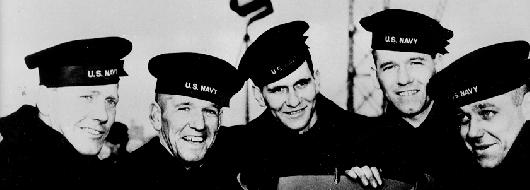
1942 WW2: Lieutenant General Dwight D. Eisenhower flies to Algeria to conclude an agreement with French Admiral Jean Darlan.
1943 WW2: Germans execute 1,360 prisoners in Rowne, including a hundred members of the AK.
1945 General Charles De Gaulle is elected president of the French provisional government with the vote of all 555 deputies.
1946 The first artificial snow from a natural cloud, is produced, by Vincent J. Schaefer on Mount Greylock, Massachusetts. I'd have never guessed that you folks in Massachusetts suffer snow shortages demanding measures of this sort.
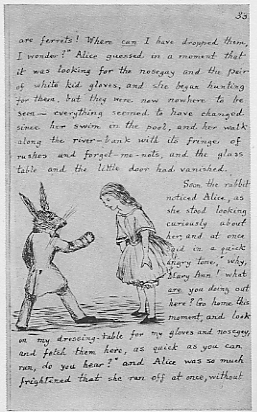
1949 Birth: Caryn Johnson; mortuary cosmetologist, bricklayer.
1952 Harvard's Paul Zoll becomes the first man to use electric shock to treat cardiac arrest.
1955 NBC employs the scatter system of relaying a telecast by 'bouncing' the signal off an airplane as it makes the first overseas broadcast in television history, from Havana to Miami.
1956 The US Supreme Court rules that race segregation on public transport is unconstitutional.

1970 Lieutenant General Hafez al-Assad seizes power, becoming Prime Minister in Syria, following a bloodless military coup.

1973 A state of emergency is declared in Britain after power workers and coal miners begin industrial action.
1973 The 'cod war' between Britain and Iceland subsides when the Icelandic parliament approves terms of settlement.
1974 Death: Karen Silkwood, a union activist at the Kerr-McGee plutonium plant near Crescent, Oklahoma, in a mysterious car accident. Silkwood was leading the efforts towards investigating radiation poisoning at the plant, and speculators feel that her death is not accidental, as she was driving to meet with reporters at the time of the fatal accident. (Bradley)
1974 Yasser Arafat tells the UN General Assembly that the goal of the Palestine Liberation Organization is to establish an independent state of Palestine.
1979 Ronald Reagan in New York, announces his candidacy for President.
1982 US President Ronald Reagan lifts sanctions against European firms supplying components for a Soviet gas pipeline.
1985 In Colombia, the Nevado del Ruiz volcano erupts; an estimated 25,000 people die; the third-deadliest volcano disaster in history.
1986 The US clandestinely violates the Iran arms boycott by trading surface to air missiles to Iran in return for promises of hostage releases.
1988 The Soviets launch their first unmanned Space Shuttle in a two-day test.
1989 The Pakistani cabinet resigns, giving Prime Minister Benazir Bhutto a free hand to form a new government.
1992 A group of retired military officers makes an unsuccessful attempt to assassinate Peruvian President Alberto Fujimori and overthrow the government.
1993 Pakistan's Foreign Minister Farooq Leghari is chosen president.
1994 Swedes vote by 52.2 percent in a referendum to join the European Union.
1995 A bomb attack on the US military center in Riyadh, Saudi Arabia, kills seven people, five of them Americans.
1995 Israel begins pulling troops out of the West Bank city of Jenin to end 28 years of continuous occupation.
1997 Iraq expels the American members of the UN team that had been sent to verify Iraq's compliance with UN directives.
1998 US President Bill Clinton agrees to pay Paula Jones $850,000, without an apology or admission of guilt, to settle her sexual harassment lawsuit.
2000 UK Prime Minister Tony Blair and Foreign Secretary Robin Cook launch a new European offensive, arguing that EU membership has boosted British influence.

2001 Former South African President Nelson Mandela meets with US President Bush and expresses "grave concern" that the President will not meet with Palestinian leader Yasser Arafat.
2001 President Bush and Russian President Putin meet in Washington to discuss the slashing of their nuclear weapons arsenals. Bush speaks to reporters after their three hour meeting, saying, "Together, we're making history as we make progress, we're transforming our relationship from one of hostility and suspicion to one based on cooperation and trust." Putin adds, "We no longer have to intimidate each other to reach agreements."
2001

2002

2003

2004

2004

2004

Visit:




 Visit:
Visit:

Click Here to email the History: One Day At a Time webmaster.